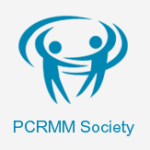 23 July 2019
23 July 2019
The Arthritis and Musculoskeletal Alliance, an alliance of prominent health charities, professional and research bodies, welcomed the publication of the Advancing our health: prevention in the 2020s consultation document from the UK Government.
The Green Paper recognises that for the last 30 years, problems with joints, bones and muscles have been the most common cause of years lived with disability in England and the Green Paper’s proposition includes increasing the join-up across mental and physical health services. It includes ensuring businesses are equipped with the knowledge and tools they need for musculoskeletal health, convening a reference group on this.…
Read more of this article



 Guest blog by Andy Bell, Deputy Chief Executive, Centre for Mental Health
Guest blog by Andy Bell, Deputy Chief Executive, Centre for Mental Health NICE are inviting organisations to register as a stakeholder for the guideline: ‘Safe prescribing and withdrawal management of prescribed drugs associated with dependence and withdrawal’.
NICE are inviting organisations to register as a stakeholder for the guideline: ‘Safe prescribing and withdrawal management of prescribed drugs associated with dependence and withdrawal’.
 Last year, ARMA members helped Glykeria Skamagki, the senior lecturer in Physiotherapy at Coventry University, with the first stage of a study into chronic musculoskeletal conditions and their management at the workplace. The results were very interesting and now to follow-up the researchers are conducting a survey to identify the strategies that older employees use to manage chronic musculoskeletal conditions at the workplace.
Last year, ARMA members helped Glykeria Skamagki, the senior lecturer in Physiotherapy at Coventry University, with the first stage of a study into chronic musculoskeletal conditions and their management at the workplace. The results were very interesting and now to follow-up the researchers are conducting a survey to identify the strategies that older employees use to manage chronic musculoskeletal conditions at the workplace.
 IMplementation of Physical Activity into routine Clinical pracTice in Rheumatic Musculoskeletal Disease
IMplementation of Physical Activity into routine Clinical pracTice in Rheumatic Musculoskeletal Disease
 Rheumatoid Arthritis (RA) is very much on my mind as I write this during RA Awareness Week. Yesterday I attended a roundtable discussing the NHS Long Term Plan (LTP) and RA. Rheumatology doesn’t get a specific mention in the plan, but there is plenty of content on related issues. There is mention of chronic pain, for instance, which is very relevant to ARMA and to RA. Access to integrated pain services is something ARMA members have identified as a priority following the publication of our
Rheumatoid Arthritis (RA) is very much on my mind as I write this during RA Awareness Week. Yesterday I attended a roundtable discussing the NHS Long Term Plan (LTP) and RA. Rheumatology doesn’t get a specific mention in the plan, but there is plenty of content on related issues. There is mention of chronic pain, for instance, which is very relevant to ARMA and to RA. Access to integrated pain services is something ARMA members have identified as a priority following the publication of our 
 The UK Gout Society is seeking a new patient trustee.
The UK Gout Society is seeking a new patient trustee.


 A team of researchers and clinicians from the University of East Anglia’s School of Health Sciences and the Norfolk and Norwich University Hospitals NHS Foundation Trust are looking for contributors/partners to help in their next project. The project would involve an application for NIHR Research for Patient Benefit (tier 3) funding.
A team of researchers and clinicians from the University of East Anglia’s School of Health Sciences and the Norfolk and Norwich University Hospitals NHS Foundation Trust are looking for contributors/partners to help in their next project. The project would involve an application for NIHR Research for Patient Benefit (tier 3) funding.